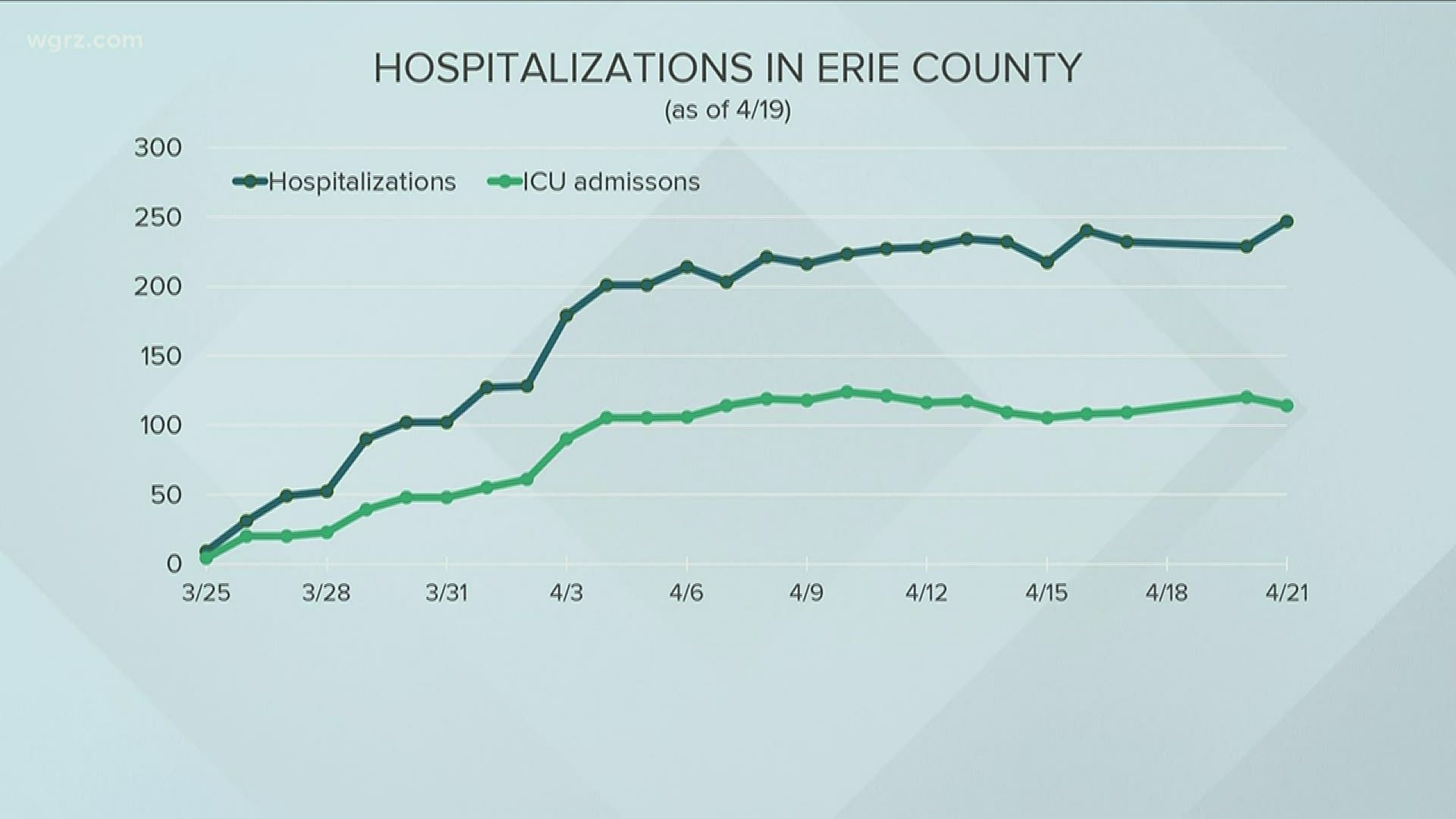ERIE COUNTY, N.Y. — Erie County Executive Mark Poloncarz reported Wednesday evening that there have been 11 new coronavirus-related deaths, bringing the total number of deaths to 188.
Poloncarz also announced that the Erie County Department of Health received approximately 1,000 test results from Quest Diagnostics on Wednesday afternoon. With these new tests Erie County now has 2,505 confirmed cases of coronavirus, which is an increase of 152 positive cases.
Poloncarz says 9,453 people have been tested thus far in Erie County.
The county executive says there are more positive cases and more deaths in Erie County than in Allegheny County, Pennsylvania, which includes Pittsburgh, and Cuyahoga County, Ohio, which includes Cleveland, even though Erie County has about 300,000 fewer residents.
As of Monday 243 individuals were hospitalized. Of those individuals, 114 people were in ICU and 93 of those people had an airway assist.
Erie County and Kaleida Health also announced Monday that they will now be testing any person that shows symptoms of COVID-19. Poloncarz is also reminding residents that if you are sick and get tested for coronavirus you must remain in isolation until you get your test results.
RELATED: Gov. Cuomo: WNY is on the plateau; elective surgeries to begin in some counties, not Erie County
Coronavirus symptoms
The symptoms of coronavirus can be similar to the flu or a bad cold. Symptoms include a fever, cough and shortness of breath, according to the Centers for Disease Control.
Most healthy people will have mild symptoms. A study of more than 72,000 patients by the Centers for Disease Control in China showed 80 percent of the cases there were mild.
But infections can cause pneumonia, severe acute respiratory syndrome, kidney failure, and even death, according to the World Health Organization. Older people with underlying health conditions are most at risk.
The CDC believes symptoms may appear anywhere from two to 14 days after being exposed.
Human coronaviruses are usually spread through...
- The air by coughing or sneezing
- Close personal contact, such as touching or shaking hands
- Touching an object or surface with the virus on it, then touching your mouth, nose or eyes before washing your hands.
Help stop the spread of coronavirus
- Stay home when you are sick.
- Eat and sleep separately from your family members
- Use different utensils and dishes
- Cover your cough or sneeze with your arm, hot your hand.
- If you use a tissue, throw it in the trash.
Lower your risk
- Wash your hands often with soap and water for at least 20 seconds. If soap and water are not available, use an alcohol-based hand sanitizer.
- Avoid touching your eyes, nose, and mouth with unwashed hands.
- Avoid close contact with people who are sick.
- Clean and disinfect frequently touched objects and surfaces.
- If you are 60 or over and have an underlying health condition such as cardiovascular disease, diabetes or respiratory illnesses like asthma or COPD, the World Health Organization advises you to try to avoid crowds or places where you might interact with people who are sick.

